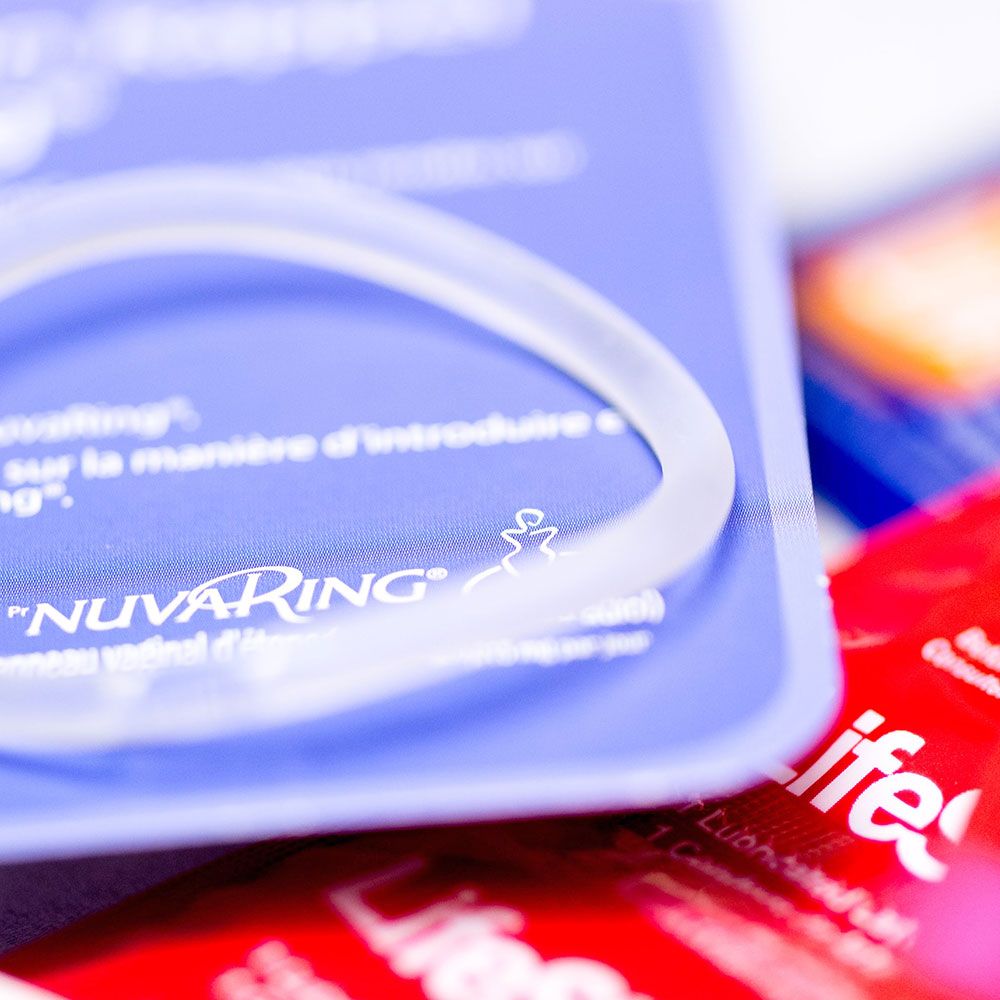Sexual & reproductive health
Like other aspects of our health and wellbeing, having knowledge and understanding about sexual health creates opportunities for us to lead healthy lives. Sexual health includes:
- our physical health
- our perception of our sexual self
- body image
- cultural and personal understandings of sex
- social attitudes towards sex
- our relationships with others
The Student Wellness team provides sexual health information, sexual counselling, pregnancy testing, PAP screening, sexual health supplies (e.g. condoms) and testing for sexual transmitted infections (STI Screening).
We assist students to talk comfortably about sex and to navigate their sexual relationships. Many people struggle with finding the words to use when talking about sex and sexual relationships. We are trained to be sensitive listeners and to help students ask for what they need.
Refer to the Sexual Violence Prevention & Response Office for information and resources about sexual assault.
Services
Contraception
- Education about all methods of contraception
- Prescriptions for all types of contraception
- Nexplanon Implant available on site
- IUD available on site
- Emergency contraception (Plan B) is available to purchase ($19). Must consult with a practitioner first.
- External and internal condoms, latex dam, and lube supplies
- For more information about contraception options click here.
- Starting April 1st BC will be the first province in Canada to offer free birth control to it’s residents (who have MSP and have applied for Fair PharmaCare). For more information about the roll out of free birth control in BC and information about the different birth control methods that will be covered, click here
Pregnancy
- Pregnancy testing
- Counselling support for pregnancy options
- Referrals to community supports
HPV Prevention
- HPV (human papillomavirus) is the most common STI, it is very contagious and spreads through skin-to-skin contact of the genital area or during genital, anal, or oral sex. Some strains of HPV can result in cancer or genital warts. HPV impacts all genders.
- The best way to prevent HPV is to get immunized.
- Book an appointment with one of our Physicians or our Nurse Practitioner if you would like to talk to them about getting a prescription for the HPV immunization. If you are over 18 the SUO Extended Health Benefits may cover some of the cost. Some high-risk groups may also qualify for free immunizations (see Immunize BC for details).
- For more information about HPV click here.
Pap screens
- Cervical cancer screening (Pap Test) is a test that can find abnormal cells in the cervix before they become cancer. Pap screens are at no charge and can be done by a female healthcare provider in the clinic. All women aged 25 to 69 should be screened every three years if PAP results are normal.
- Often cervical cancer does not have any noticeable symptoms. Symptoms that do appear may include: abnormal vaginal bleeding (such as bleeding between periods, bleeding during/after sex); abnormal or persistent vaginal discharge, and/or pelvic pain or pain during sexual intercourse.
- For more information about Pap screens, visit BC Cancer Agency Cervix Screening.
STI Testing
The only way to know if you have a sexually transmitted infection (STI) is to get tested, since it is common not to have any symptoms when you have an STI. The good news is that STIs are manageable, if not curable! It’s important to know they can lead to complications if left untreated. While using condoms can reduce your risk of getting an STI, it does not eliminate your risk. If you’re sexually active, regular STI testing is key.
According to the BCCDC’s website, “it’s a good idea to get tested for STIs regularly, usually every 3–12 months.” For more information visit their website.
- Routine screening includes testing for chlamydia, gonorrhea, HIV, and syphilis, and checking if you are immune to Hepatitis B. For more information about STIs click here.
- We use a non-invasive collection method. A physical exam is only required if your symptoms indicate a need for further assessment.
- Generally speaking, if you have a penis, you pee in a cup.
- If you have a vagina, you do vaginal swabs.
- If you have received anal sex, you do a rectal swab.
- If you have had oral sex, the nurse will collect a throat swab for you, since this one is a little tricky to do by yourself.
- Please Note: If you need a urine test, very little urine is needed, but it’s best if you go 1-2 hours without urinating before doing the test.
STI Testing by Appointment in Clinic (UNC 337)
- We have online booking available for STI screens.
- Prioritized appointments may be available if you are experiencing symptoms or have been contacted by a partner who received a positive STI result. Please call the front desk (250-807-9270) to inquire.
Express STI Testing Events (Drop-In NCH 251)
- In an ongoing effort to make STI testing more accessible and convenient, Student Wellness is providing express STI screening in Nechako Residence! No appointment is needed. For event details visit the UBCO Events Calendar.
- **Remember to bring your Provincial Health Number or iMed so we can send your samples to the lab. We will also need your student number for registration.


